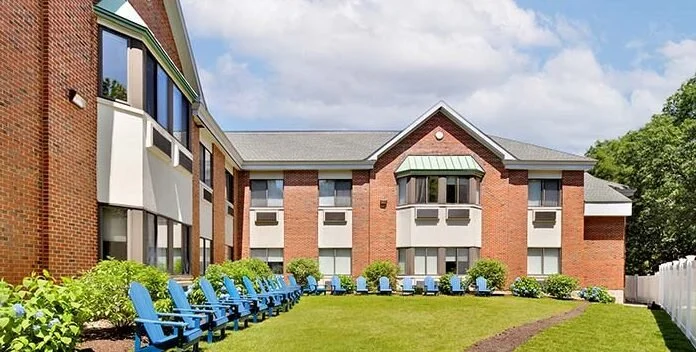Opioid Treatment Programs in New England
Spring Hill Recovery Center
Opioid addiction has reached epidemic levels across the United States, and New England is no exception. As opioid abuse continues to impact individuals, families, and communities, opioid treatment programs (OTPs) in New England have become a vital resource for those seeking recovery and long-term sobriety. In this article, we’ll discuss important facts related to opioid abuse and highlight key opioid treatment programs in New England, including Spring Hill Recovery Center and Bedrock Recovery Center.
Facts Related to Opioid Abuse in New England
Opioid abuse is a public health crisis that has plagued communities across the United States, including in New England. The misuse of prescription opioids, as well as heroin and fentanyl, has led to devastating consequences, including rising overdose deaths, strained healthcare systems, and overwhelmed law enforcement. According to recent data:
Opioid Overdose Deaths: In 2020, New England states saw a substantial increase in opioid-related deaths. According to the Centers for Disease Control and Prevention (CDC), Massachusetts, Rhode Island, and New Hampshire have some of the highest rates of opioid overdose deaths in the country.
Prescription Opioids: Prescription opioid misuse continues to be a significant issue. While there has been progress in reducing opioid prescriptions, people with opioid use disorder (OUD) often turn to illicit sources, such as heroin or fentanyl, when prescription drugs are unavailable or too expensive.
Fentanyl's Role: Fentanyl, a synthetic opioid that is far stronger than morphine, has been a major contributor to the opioid crisis. In New England, fentanyl is often found mixed with heroin or counterfeit prescription pills, leading to an increase in overdose fatalities.
These statistics demonstrate the critical need for opioid treatment programs that can help individuals struggling with addiction regain control of their lives and promote lasting recovery.
What Are Opioid Treatment Programs (OTPs)?
Opioid treatment programs (OTPs) provide comprehensive care and support for individuals battling opioid addiction. These programs typically offer a combination of medical detoxification, medication-assisted treatment (MAT), behavioral therapy, and counseling to address the physical, psychological, and emotional aspects of addiction.
In New England, OTPs are designed to cater to the unique needs of individuals who are struggling with opioid dependence. The goal is to help individuals detox safely, reduce cravings, prevent relapse, and support long-term recovery. Treatment plans are often customised for everyone based on their history, needs, and progress.
Common components of opioid treatment programs include:
Medication-Assisted Treatment (MAT): MAT is an evidence-based approach that combines medications, such as methadone, buprenorphine, or naltrexone, with counseling and behavioral therapies. These medications help reduce withdrawal symptoms and cravings, which can significantly improve the chances of recovery.
Counseling and Therapy: Therapy options include individual counseling, group therapy, family therapy, and cognitive-behavioral therapy (CBT). These therapies help individuals understand the root causes of their addiction, develop coping mechanisms, and learn strategies to prevent relapse.
Medical Supervision: Patients in OTPs are typically monitored by healthcare professionals throughout the treatment process. This ensures that withdrawal symptoms are managed safely and that individuals are supported medically during their recovery journey.
Now, let’s take a closer look at two prominent opioid treatment centers in New England: Spring Hill Recovery Center and Bedrock Recovery Center.
Spring Hill Recovery Center
Location: Spring Hill Recovery Center is located in Ashby, Massachusetts, and serves individuals throughout New England.
Overview: Spring Hill Recovery Center provides comprehensive opioid addiction treatment for men and women. They offer a variety of evidence-based treatment options, including residential treatment, outpatient services, and intensive outpatient programs (IOP). The center’s approach is rooted in individualised care, where each patient’s unique needs are assessed and a customised treatment plan is created.
Services Offered at Spring Hill Recovery Center:
Medical Detoxification: Spring Hill offers medically supervised detox to help individuals safely rid their bodies of opioids. Detox is the first step in recovery and is essential for ensuring that withdrawal symptoms are managed effectively.
Medication-Assisted Treatment (MAT): MAT is available at Spring Hill for those who need medication support during their recovery journey. This approach helps individuals manage cravings and withdrawal symptoms while they undergo therapy and counseling.
Inpatient Rehabilitation: The center offers inpatient residential treatment, where individuals stay at the facility to receive round-the-clock care, therapy, and support. This environment allows individuals to focus on their recovery in a structured and safe setting.
Outpatient Programs: For individuals who have completed residential treatment, Spring Hill offers outpatient programs that provide continued support and care on a less intensive basis. These programs are ideal for individuals transitioning back into everyday life.
Family Support: Spring Hill Recovery Center recognises that addiction affects not only the individual but also their family. The center provides family therapy and educational resources to help families support their loved ones in recovery.
Why Choose Spring Hill Recovery Center?
Spring Hill Recovery Center is committed to providing a safe and supportive environment for those struggling with opioid addiction. With a focus on individualised care and evidence-based treatment, Spring Hill has helped countless individuals achieve lasting recovery. Additionally, the center’s serene setting in Ashby, Massachusetts, provides a peaceful space for reflection and healing.
Bedrock Recovery Center
Location: Bedrock Recovery Center is located in Canton, Massachusetts, and serves individuals from all over New England.
Overview: Bedrock Recovery Center is a leading treatment facility that specialises in opioid addiction treatment. With a focus on both physical and emotional healing, Bedrock offers personalised care to individuals struggling with opioid use disorder. The center combines innovative medical treatments with traditional therapeutic techniques to provide a holistic approach to recovery.
Services Offered at Bedrock Recovery Center:
Detoxification and Stabilization: Bedrock provides medically supervised detoxification services to ensure a safe and comfortable withdrawal process. The center’s team of medical professionals monitors patients closely during detox to address any medical complications that may arise.
Medication-Assisted Treatment (MAT): Bedrock offers MAT for individuals who need support managing opioid cravings and withdrawal symptoms. The medications used are combined with therapy and counseling to promote long-term sobriety.
Residential Treatment: Bedrock offers residential treatment programs where patients can stay at the center and receive intensive, 24/7 care. This program is ideal for individuals who need a structured and supportive environment to address their addiction.
Partial Hospitalization Program (PHP) and Intensive Outpatient Program (IOP): These programs are designed for individuals who have completed inpatient care but still require intensive treatment. The PHP and IOP programs offer flexibility while providing a high level of care and support.
Individualised Therapy: Therapy is a core component of Bedrock’s treatment approach. The center offers a range of therapeutic modalities, including individual counseling, group therapy, and family therapy, to help individuals understand the root causes of their addiction and develop healthy coping mechanisms.
Aftercare and Relapse Prevention: Bedrock offers aftercare programs to help individuals maintain their recovery and avoid relapse. These programs provide ongoing support, group therapy, and monitoring to ensure that individuals continue on their path to sobriety.
Why Choose Bedrock Recovery Center?
Bedrock Recovery Center provides personalised and compassionate care for individuals struggling with opioid addiction. Their team of dedicated professionals offers evidence-based treatments and therapies to help individuals overcome addiction and build a strong foundation for recovery. With a focus on long-term success, Bedrock offers comprehensive care that addresses both the physical and emotional aspects of addiction.
Conclusion
Opioid addiction is a serious and pervasive issue in New England, but opioid treatment programs (OTPs) offer hope and healing for those affected by the crisis. Whether you are struggling with opioid use disorder or are seeking help for a loved one, treatment centers like Spring Hill Recovery Center and Bedrock Recovery Center provide a range of evidence-based therapies and services designed to support recovery.
Through comprehensive programs that combine medication-assisted treatment, therapy, and support, individuals have the opportunity to heal physically, emotionally, and mentally from opioid addiction. With the right help, recovery is possible, and the road to a healthier, sober life can be achieved.
If you or someone you know is battling opioid addiction, consider reaching out to a treatment program in New England today. You don’t have to face addiction alone—help is available, and recovery is within reach.
Bedrock Recovery Center
Q&A
Q1: How do opioid treatment programs help with opioid addiction?
Opioid treatment programs (OTPs) offer comprehensive care, including medical detox, medication-assisted treatment (MAT), therapy, and counseling. These programs help individuals reduce cravings, manage withdrawal symptoms, and address the root causes of their addiction through therapy, which significantly supports long-term recovery.
Q2: What is Medication-Assisted Treatment (MAT)?
Medication-Assisted Treatment (MAT) is an evidence-based approach that combines medications (like methadone, buprenorphine, or naltrexone) with therapy and counseling to help individuals manage opioid cravings and withdrawal symptoms, ultimately improving their chances of long-term recovery.
Q3: How long does opioid addiction treatment take?
The duration of opioid addiction treatment depends on the individual's needs and progress. Some individuals may require weeks of inpatient treatment, while others may move to outpatient care. Detox and stabilisation often take 7-10 days, followed by intensive therapy and ongoing support.
Q4: Does insurance cover opioid treatment programs?
Yes, many opioid treatment programs accept insurance and provide sliding-scale payment options. Coverage typically includes medications for MAT, detox services, therapy, and aftercare. It’s important to verify your specific insurance benefits before enrolling in a program.
Q5: What are the benefits of family therapy in opioid treatment programs?
Family therapy helps educate and support loved ones, improving communication and strengthening relationships. It also assists families in understanding the addiction process, reducing stigma, and providing a support system for the individual in recovery, leading to better outcomes.


